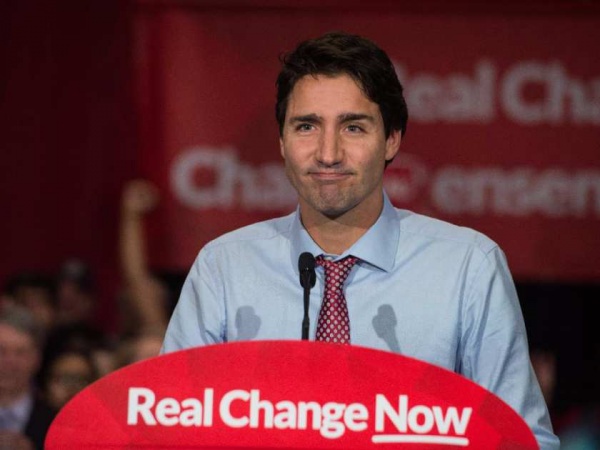The Liberal Government plans to fight climate change with compulsory provincial carbon pricing schemes. However, these measures are not suitable considering Canada’s current economic predicament. The imposition of carbon tax schemes represents the Liberals’ commitment to burdensome and ineffective ways of combatting climate change. These taxes raise energy prices for citizens, and are detrimental to the competitiveness of Canadian businesses, especially in light of circumstances south of the border.
With Donald Trump now in the Oval Office, Canadians must be cognizant of the fact that we are not only America’s greatest trading partner, but also its greatest competitor for investment and jobs. And with Trump stripping away environmental legislation, American energy firms will be at an advantage compared to their northern competitors. President Trump has promised to reverse many of the environmentally-conscious regulations implemented in the Obama years, and has suggested withdrawing the United States from the 2015 Paris Agreement on climate change.
Saskatchewan Premier Brad Wall raised the issue of competing with the United States as a key reason for opposing Prime Minister Justin Trudeau’s national carbon tax scheme after Trump’s election. Wall argued that carbon pricing will hurt the Canadian economy's growth by costing it jobs and investment, which in turn diminishes Canada’s ability to enact meaningful climate change action. As such, Saskatchewan, along with Manitoba, has rejected Ottawa’s carbon pricing plan.
In response to Premier Wall, the Prime Minister said, "I think all Canadians know that Canadian climate policy will be set by Canadians, not by whomever happens to be the president of the United States.” While this feel-good statement may win over the hearts of his fans, it is also tremendously naive. Justin “It’s 2015” Trudeau needs to wake up to face the harsh realities of 2017.
The imposition of carbon taxes will put Canadian firms at a disadvantage compared to their international counterparts, as the burden of these taxes drives up costs for businesses. In turn, firms must lay off workers, cut investment, or relocate. Ultimately, this harms the Canadian economy and raises prices for consumers.
Currently, British Columbia, Alberta, Ontario, and Quebec have implemented carbon pricing schemes, with Ottawa urging all provinces to implement them by January 2018.
Carbon taxes may sound like a good idea in theory, but if implemented they would have real consequences for the economy. Trudeau’s policy needs to acknowledge the downsides of this approach. As Conservative leadership hopeful Andrew Saxton wrote in an article for the Financial Post, “It is time for a climate policy that is rooted in reality rather than ideology.” Saxton is right.
While Trudeau has made some pragmatic concessions to economic conditions, like his recent approval of two pipelines, the prevailing notion since Paris has been full speed ahead with regards to action to counter climate change. The fact is that at present, the Canadian economy remains dependent on non-renewable sources of energy. Crude oil and natural gas account for 42 per cent and 33 per cent, respectively, of Canada’s total energy production. Renewable sources of energy, such as solar, wind, and wave power, are promising but have not been developed enough to be implemented as effective substitutes for fossil fuels by 2018.
The provinces that have led the way in implementing carbon taxes are already showing the burden these policies place on ordinary Canadians. One such Canadian is Kathy Katula, who in January pleaded her case against the implementation of the Ontario Carbon Tax to Justin Trudeau at a town hall event in Peterborough. Katula, a single mother of four working 15 hour shifts, pays over $1,000 a month in energy bills, leaving her with $130 to feed her family each month. Katula is just one of thousands of Ontarians suffering to the kind of provincial carbon tax policies that Trudeau supports. Thank goodness that Justin was on the scene to rectify the situation—with one of his signature hugs.
Furthermore, Canadians should remember the minimal impact of our emissions on a global scale—Canada emits a mere 1.6 per cent of the world’s greenhouse gases. The cost of a carbon tax on Canadians is difficult to justify considering the small impact it will have on world greenhouse gas emissions.
Combatting climate change should be a priority for the Canadian government, but it cannot do so by adopting policies that make the Canadian working class suffer. Trudeau should not advocate for more provinces to introduce carbon-reducing schemes, given that they harm consumers and hinder Canadian competition with the United States.
Perhaps Canada should test the waters again in four years’ time.









